It’s easy to see the daily gender injustice we each face and shout from the rooftops about how unfair it is. What we tend to remain blissfully ignorant of, is the number of women out there whose causes go unheard because they don’t directly impact many of us. Female Genital Mutilation is a known horror, yet we rarely see it in the press, save once a year when a new government report shows that it’s happening right here in the UK and everyone tweets about how it’s an outrage because it’s on our doorstep.
Since its International Zero Tolerance for FGM Day, you’ll see it today more than ever. With this platform comes an opportunity to ensure more people support the cause to end FGM for good. It’s not just an issue in the world’s poorest countries, it’s prevalent in the UK too- with 9179 cases reported from April 2016 to March 2017, up from the year before. Further, there were no prosecutions in cases of FGM, despite health professionals being obligated to report evidence of FGM.
However, that’s not to say we should only care about it because it impacts our own residents. The revolting practice is more common as a traditional procedure in western, northern and north-eastern Africa- although it remains a problem in the Middle East and Asia. It’s a global issue, and because of the nature of its cause, is one of the hardest to fight.
As a cultural tradition, ending FGM takes more than a legislative ban. While this is also a global necessity, it doesn’t necessarily change the way conservative villagers who support the practice think. To get to those people, it’s important to educate them on the roots of FGM, what it entails and how harmful it is.
You may be thinking, surely, they know all of that if they partake in the practice? This isn’t the case. Since cutting is usually performed on infants, most women grow up unaware of what has happened. Grandmothers are the usual cutter, and only they are aware of the process of cutting. In fact, humanitarian organisation Plan International has found that when showing mothers videos of the practice, most state they would not have allowed it to happen had they been aware.
The practice has different forms, starting with removing part or all of the clitoris. One step further involves that plus removing the inner labia and sometimes the outer labia (labia majora). The third type narrows the vaginal opening by cutting and repositioning the labia. There are also forms that include pricking, piercing, scarping or burning the area.
All of these procedures are rooted in cultural traditions that aim to cleanse a woman and remove any sexual impulses so she remains faithful to her husband. In some villages, whether or not a woman is cut is a marriage deal-breaker, as being uncut implies she is less virtuous. It’s not a religious procedure, which is another myth Plan International aims to bust in local villages.
The people out there educating villagers are the real champions of this crisis. We can donate all the money we want [{href='https://plan-uk.org/donate/make-a-donation' target='_blank' rel='noopener noreferrer'}), write to our governments to force pressure on countries to ban the practice, but it’s the enlightened figures who put their reputations on the line to teach their communities why FGM should end that are the unsung heroes of this fight. That’s why we’re introducing them to you here…
Adama Sacko

He sits on his villages council as a health advisor. His three eldest daughters were cut, his youngest is only four and benefits from his evolved knowledge of the practice. His views against cutting were cemented when his daughter had to be surgically cut when giving birth because of the damage FGM had done to her. Difficulties with pregnancy are a common health concern with FGM, with many women struggling to conceive because of it and then facing horrendous childbirth. Adama aims to change his community’s beliefs on FGM, especially men. He said:
‘Some of the men in the village have conservative views. They fear that their daughters will become promiscuous if they are not cut. It’s a question of being patient and continually entering into discussion with them.’
He has since introduced fines of cockerels or cola nuts for anyone who has their daughter cut, and doesn’t remember a cutting for three years. However, now he aims to go beyond his own village:
‘The next challenge we face is when our daughters marry men from other villages, where cutting is still customary. A family can actually reject a girl as a marriage partner if she is not cut, on the grounds that she might not be virtuous enough. This is what makes it so important that the information campaign is not restricted to our village.’
Djaminatou Togola Ouattara

Djaminatou is one of the many women who suffered complications in pregnancy from FGM. She has suffered two caesareans where the newborn did not survive, and following having her only living daughter was told she couldn’t have any more children. She works with Plan International to educate her community on the effects of FGM, and see’s women enlightened by that information every day. She said:
‘Quite often, after an information meeting, women will want to speak to me privately. ‘At last, I know what’s wrong with me,’ is typical of the things they’ll say to me. These women might have problems urinating or experience pain during intercourse, but they failed to make any connection with cutting.’
It is through empowering these women with information that she hopes to make a change, while also campaigning to get FGM outlawed in Mali. Being female is bad enough in Mali without the added torture of FGM, she added:
‘“We hope she can handle the suffering”, that’s what people tend to say here when a baby girl is born. Suffering is part and parcel of being a woman. If you are menstruating and think you are unable to attend school because of the pain, your mother will tell you to be strong and bite the bullet. It’s supposed to hurt.’
In empowering women to become a stronger voice in the community, she hopes to enforce greater change.
Nega Sacko

Nega is the imam of his village and understands the dangers of FGM far too well after losing his only daughter to it. He said:
‘I had one daughter, a wonderful girl. I didn’t want her to be cut, but her grandmother came and took her to a neighbouring village. When she was brought back she was bleeding heavily and I feared the worst. I will never forget that day.’
His daughter passed away after bleeding for three days straight. He has since vowed to use his position of power in the village to educate everyone on FGM. However, he has met opposition:
‘When Plan International came to the village and started giving out information about FGM, I immediately supported their initiative. But it met with some opposition, because people cannot differentiate between religion and traditional practices. They tend to see them as one and the same thing. People think that Islam advocates cutting to ensure a girl stays virtuous and pure.’
‘I discuss it in the mosque with men from the village and with imams from other villages, as well as at work [as a bricklayer]. Everyone in the village has heard my story because they have all passed it on to one another.’
To his knowledge, 90% of residents in his village have stopped cutting.
Fatoumata Diallo

As a Plan International FGM project officer, she is instrumental in educating different communities on the dangers of FGM. She was one of many women who wasn’t even aware she had been cut until she was taught about the practice in school, as the conversation was never discussed in her family. However, since FGM has decreased in practice, she claims it’s spoken about more and more. She said:
‘Now that we’re older, my sisters and I find it easier to talk about it. WhatsApp, which makes it all the more informal, is a big help in this respect.’
However, one particular taboo is still going undiscussed. The very reason FGM exists, to reduce sexual stimulation, is the one thing people are still too scared to approach with each other. She continued:
‘I know women who will only have sex with their husbands in the dark, because they are ashamed, or get no pleasure from sex and always pretend to have an orgasm. But many men are completely indifferent to whether their partners enjoy sex.’
This not only impacts their sex life, but also their self-esteem. However, Fatoumata aims to empower women in every aspect, and denounce this entrenched belief that a woman’s worth comes from her attractiveness towards men.
‘I think it’s very important that organisations like Plan stimulate female leadership. Parents worry if their daughters don’t attract suitors that it can give those daughters an inferiority complex. I want these girls to see that they don’t have to rely on other people to find happiness and that they can establish and strengthen their personal autonomy by finding a job and earning some money. But education is crucial in all this.’
These are just four of the amazing people working towards ending FGM in their communities, those who are fighting for feminist causes in the world's hardest places to be a woman. Outside of Mali, FGM is still rife, with the World Health Organisation estimating that over 200 million women and girls have been cut across 30 countries. They estimate that 3 million girls are at risk of FGM every year.
Visit Plan International here to support their projects to end FGM.
Click through to see all of the inspirational Instagram accounts you should follow...
Inspirational Instagram Accounts You Should Follow
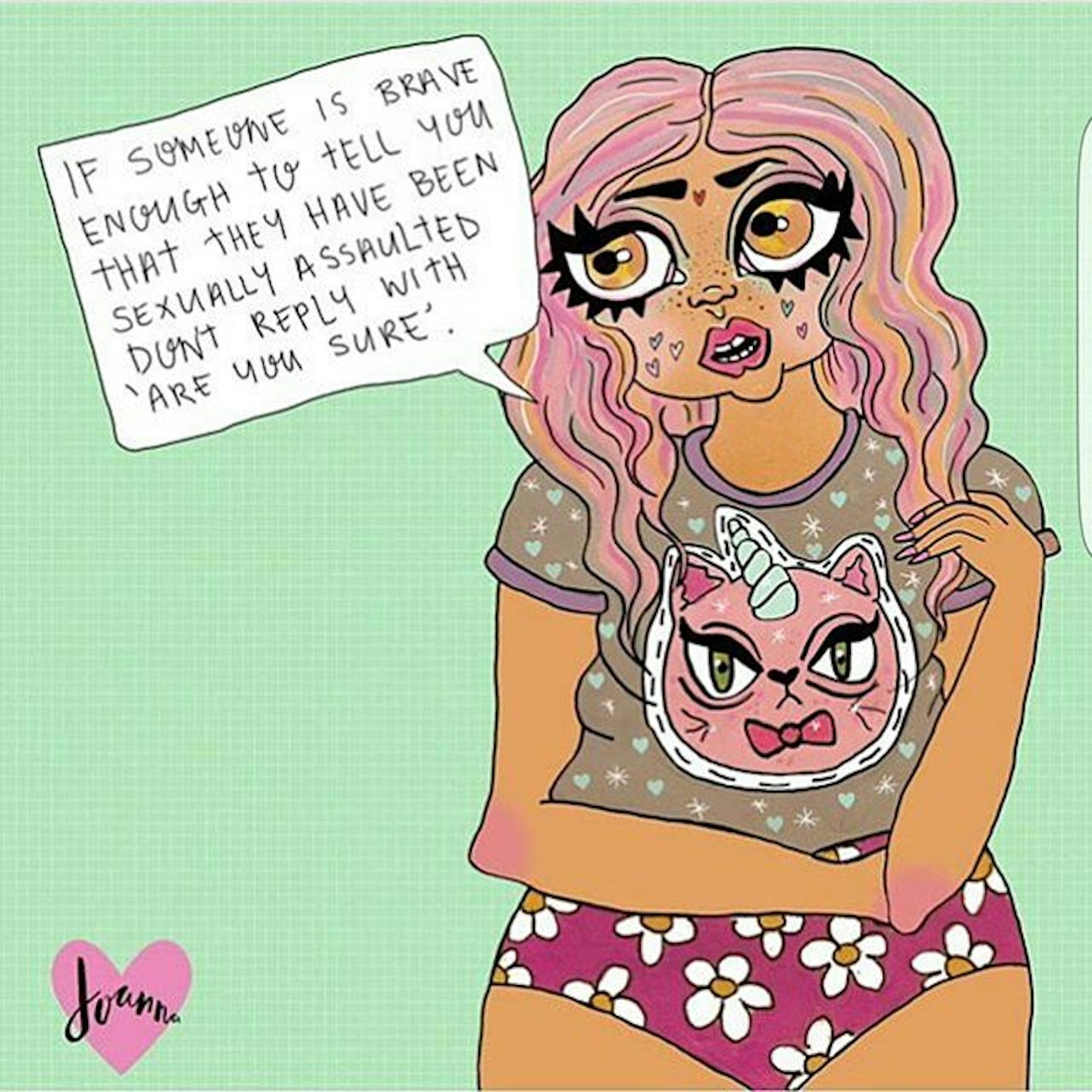 1 of 24
1 of 24Women In Comics
Illustrating inspirational images and depicting women in comic form, this account will brighten up your timeline with some home truths in the form of pretty pictures.
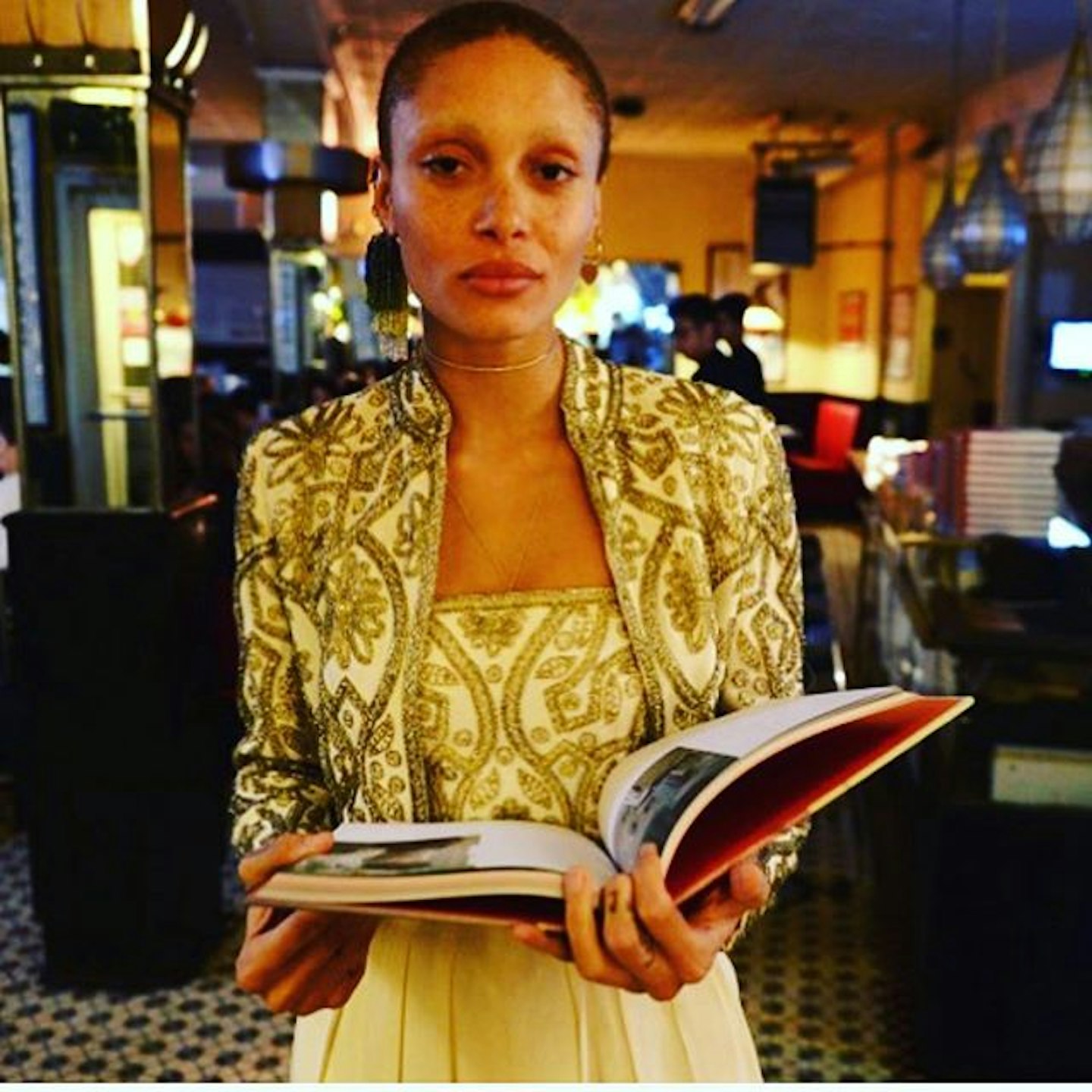 2 of 24
2 of 24Adwoa Aboah
This insanely beautiful model founded GURLS TALK, an online community where women from all backgrounds can share their personal experiences in a safe space.
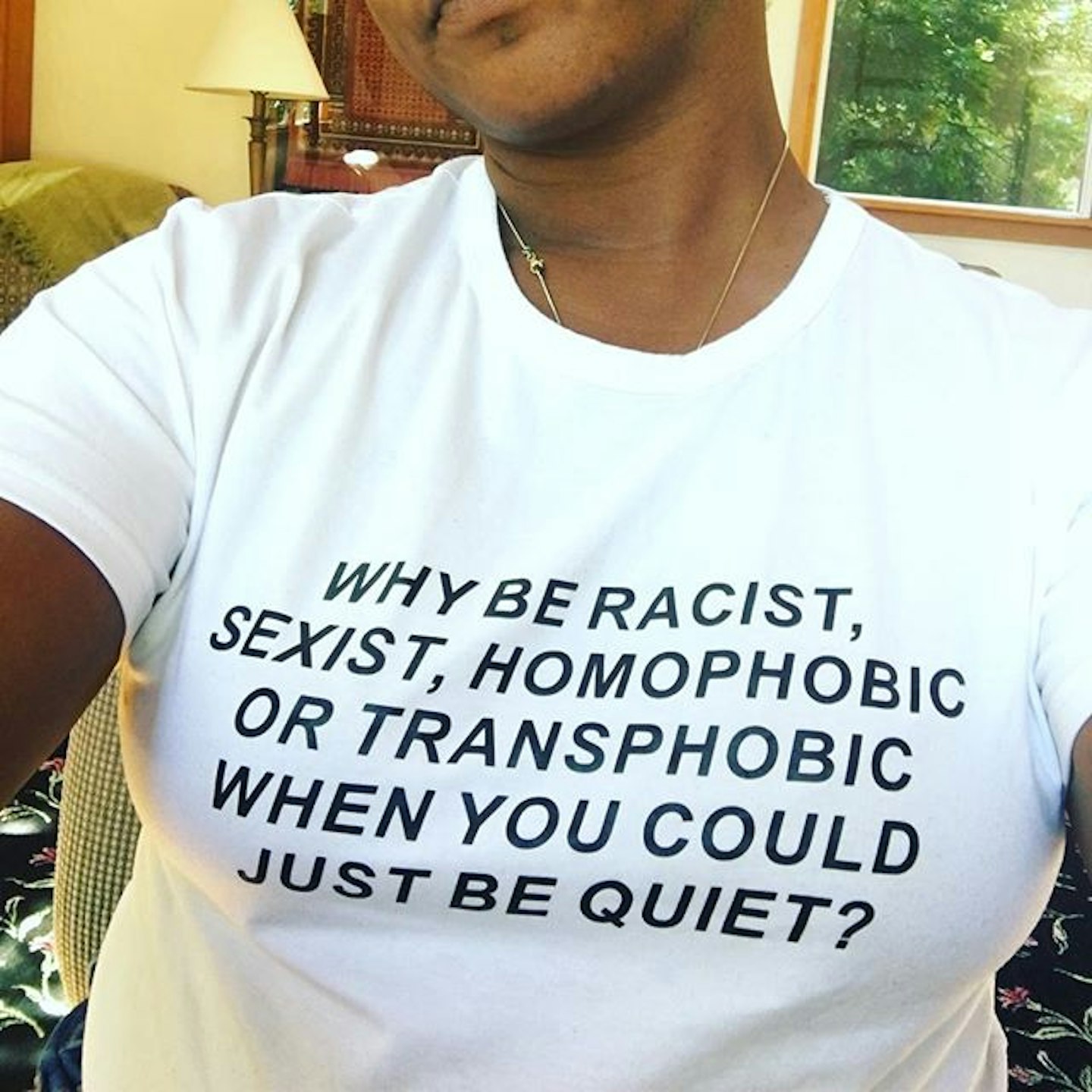 3 of 24
3 of 24Alicia Garza
Alicia is an editor and activist who co-created #BlackLivesMatter. Her feed is a mixture of relatable memes, unfiltered selfies and educational posts to keep you woke.
.jpg?auto=format&w=1440&q=80) 4 of 24
4 of 24Amandla Stenberg
You might recognise this actor from The Hunger Games, when she played the character only character we cried endless tears for, Rue. Now, while still acting, she's a full-fledged activist posting about everything gender, feminism and black culture.
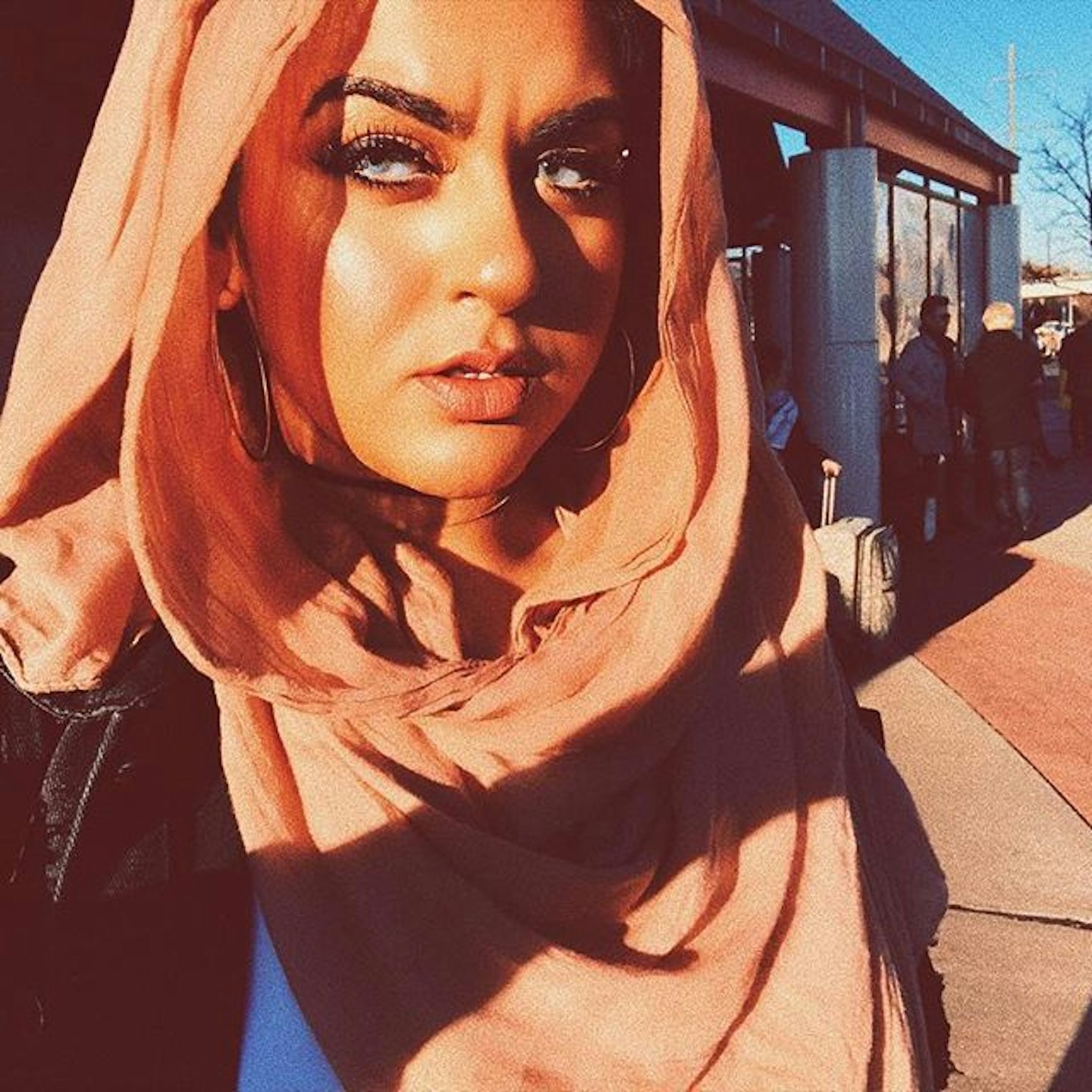 5 of 24
5 of 24MuslimGirl/Amani
Amani created the fast-growing activism account @MuslimGirl, another one you should definitely follow. She has spoken across the world about Muslim women and posts everything from badass selfies to stats you need to know.
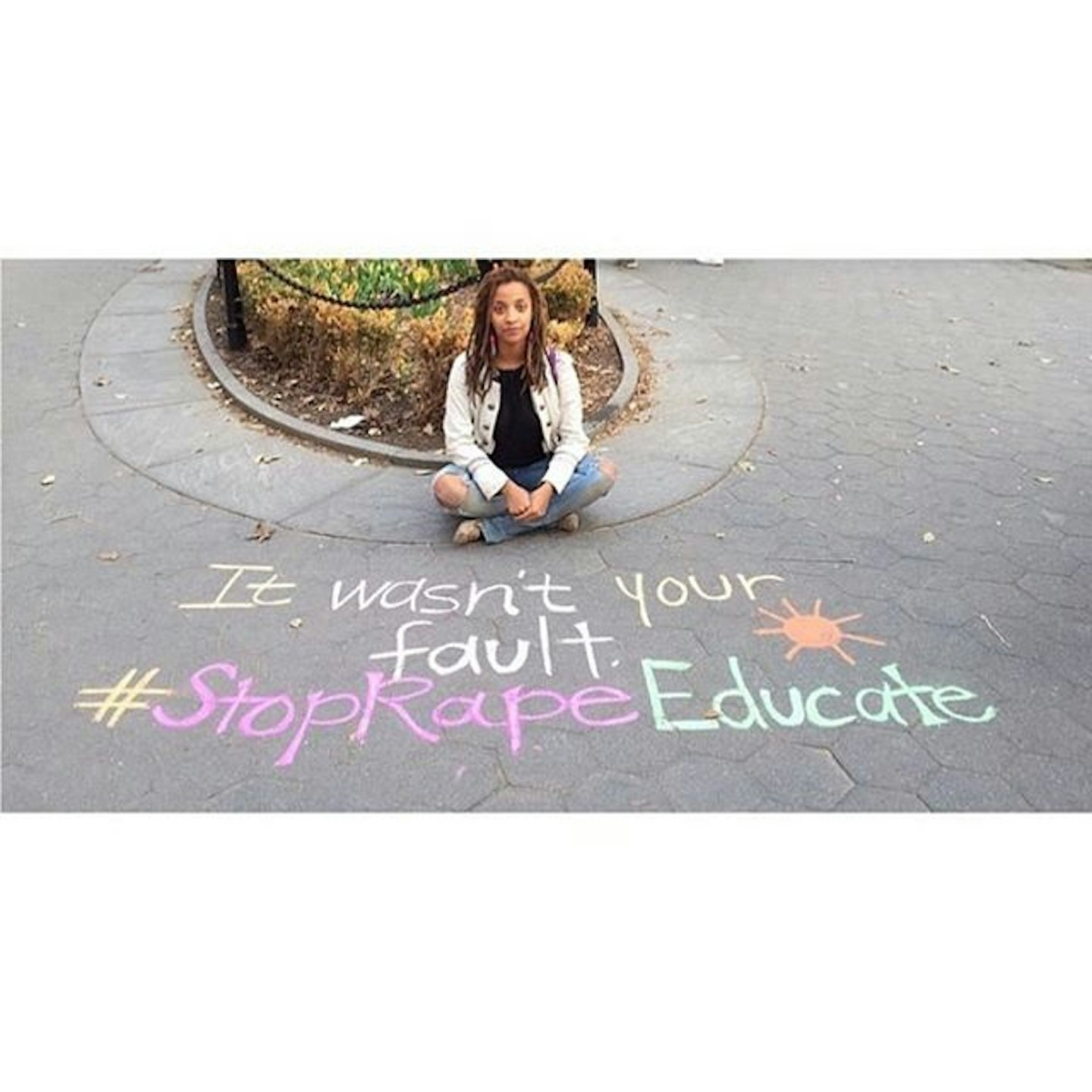 6 of 24
6 of 24Amber Amour
Amber created @CreatingConsentCulture which aims to educate people on rape culture and support rape and sexual assault survivors. She's also outspoken about racism and sex work, her feed will be endless many dinner party talking points.
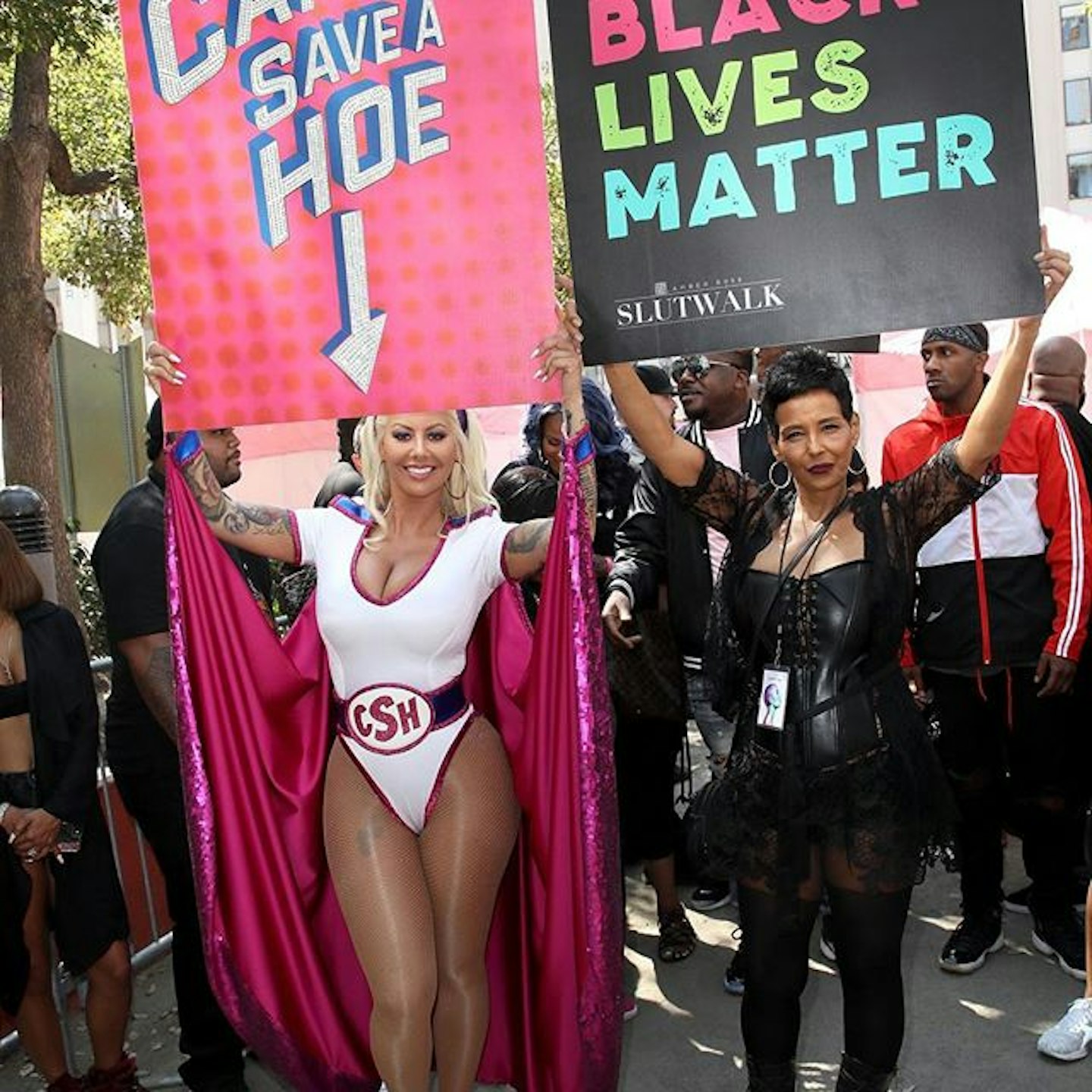 7 of 24
7 of 24Amber Rose
You may only know Amber Rose as Kanye's ex, but think again. Amber is a sex positivity icon, with her own pocast 'Loveline with Amber Rose' up until 2018 that aimed to promote healthy sexual relationships and self-love. If you can get past the fact she advertised flat tummy tea once (fgs Amber), you'll love her feminism-filled feed.
.jpg?auto=format&w=1440&q=80) 8 of 24
8 of 24Beverly Bond
Author of 'Black Girls Rock', Beverly's posts will have you both inspired and enraged, filled with commentary on everyday injustices.
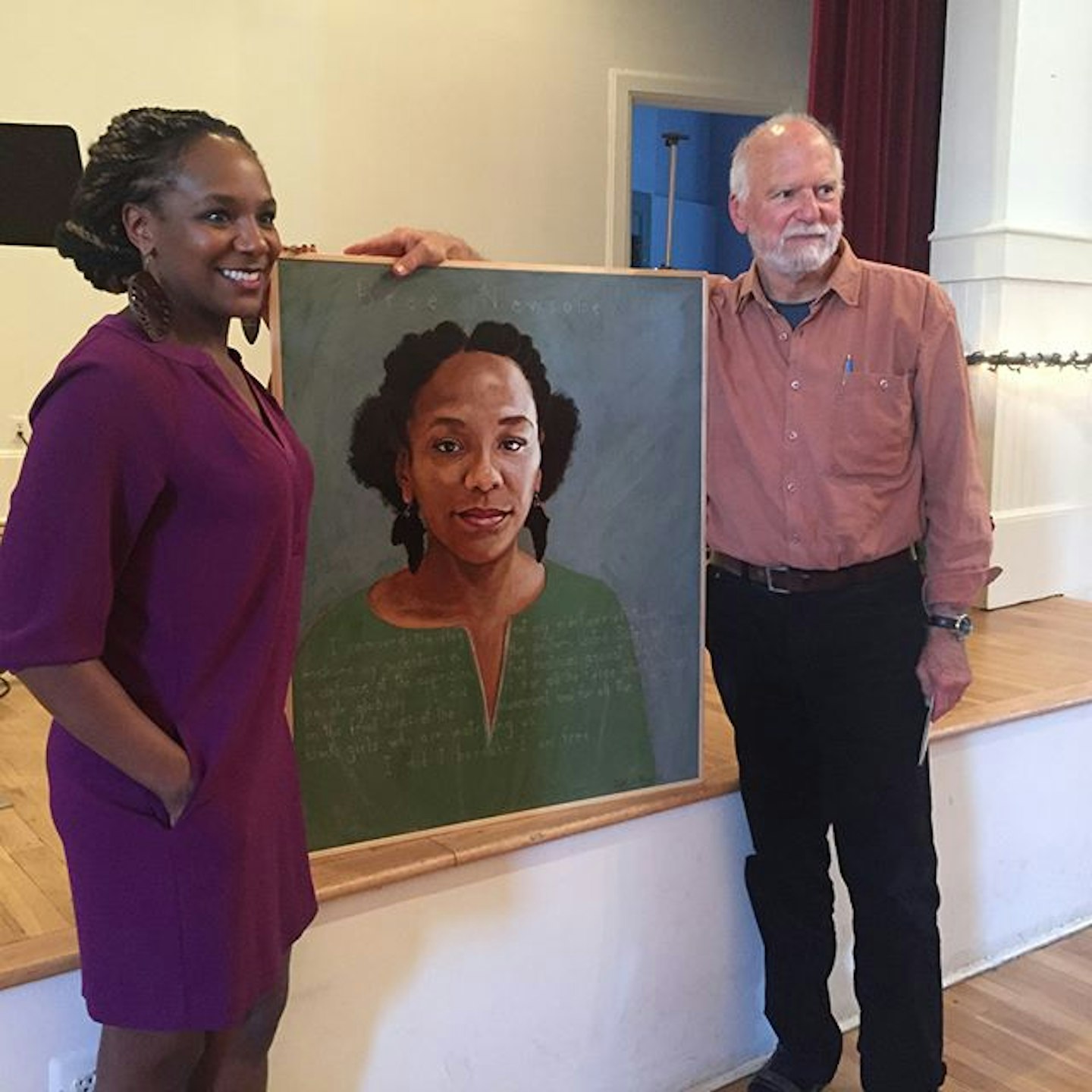 9 of 24
9 of 24Bree Newsome
You may recognise Bree as the activist who took down the confederate flag from a flagpole outside the South Carolina Capitol building. She's continuing her activism with inspiring art you need to see.
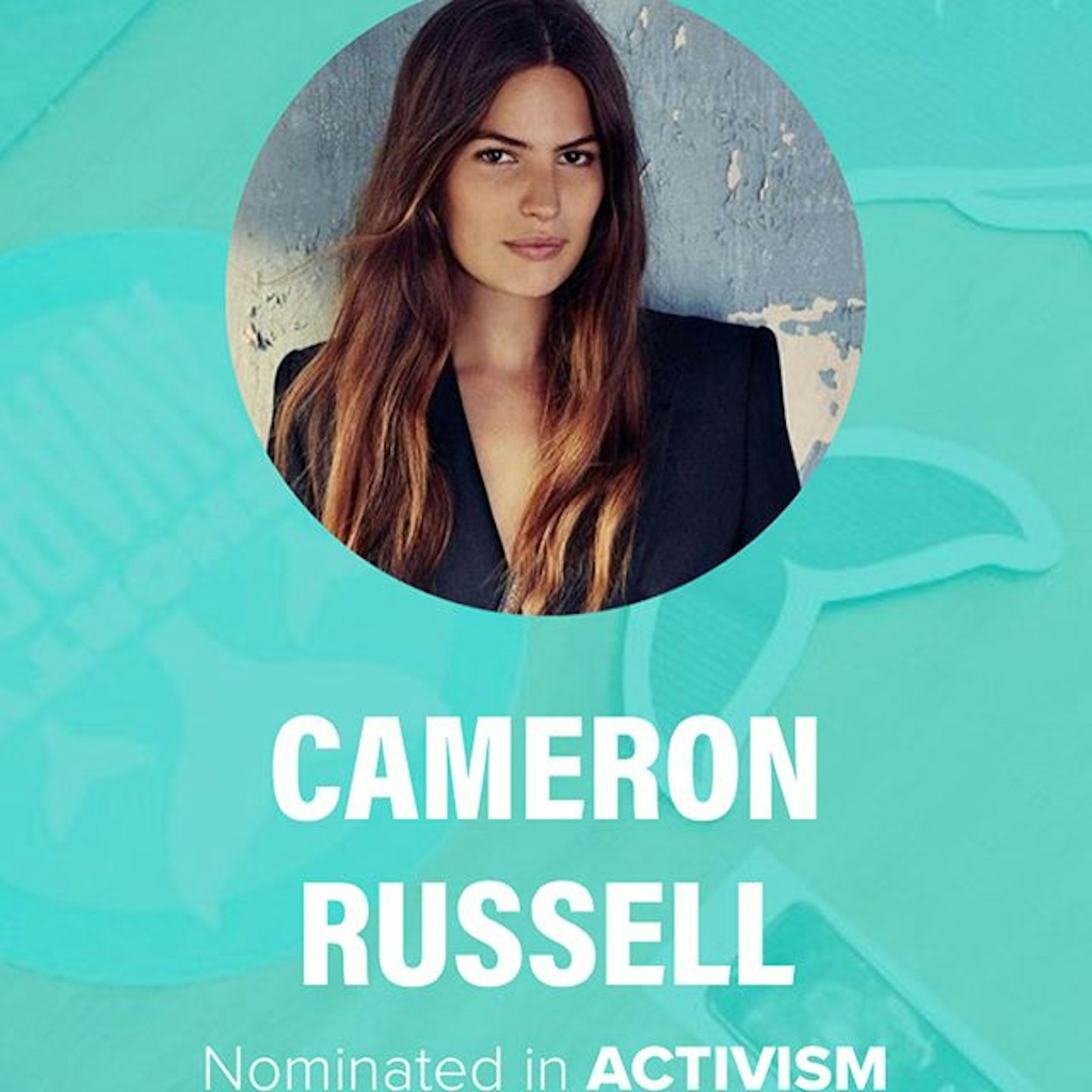 10 of 24
10 of 24Cameron Russell
An american model who called out the fashion industry for sexual harassment and assault, she started the #MyJobShouldNotIncludeAbuse hashtag. Her instagram is full of inspiring stories and educational videos exposing different injustices within her industry and beyond.
.jpg?auto=format&w=1440&q=80) 11 of 24
11 of 24Iskra Lawrence
If your not already following Iskra, your living under an Instagram rock. The body positive model started her own business, everyBODY with Iskra, to give health and fitness advice beyond just getting super skinny. You need her body posi vibes in your life.
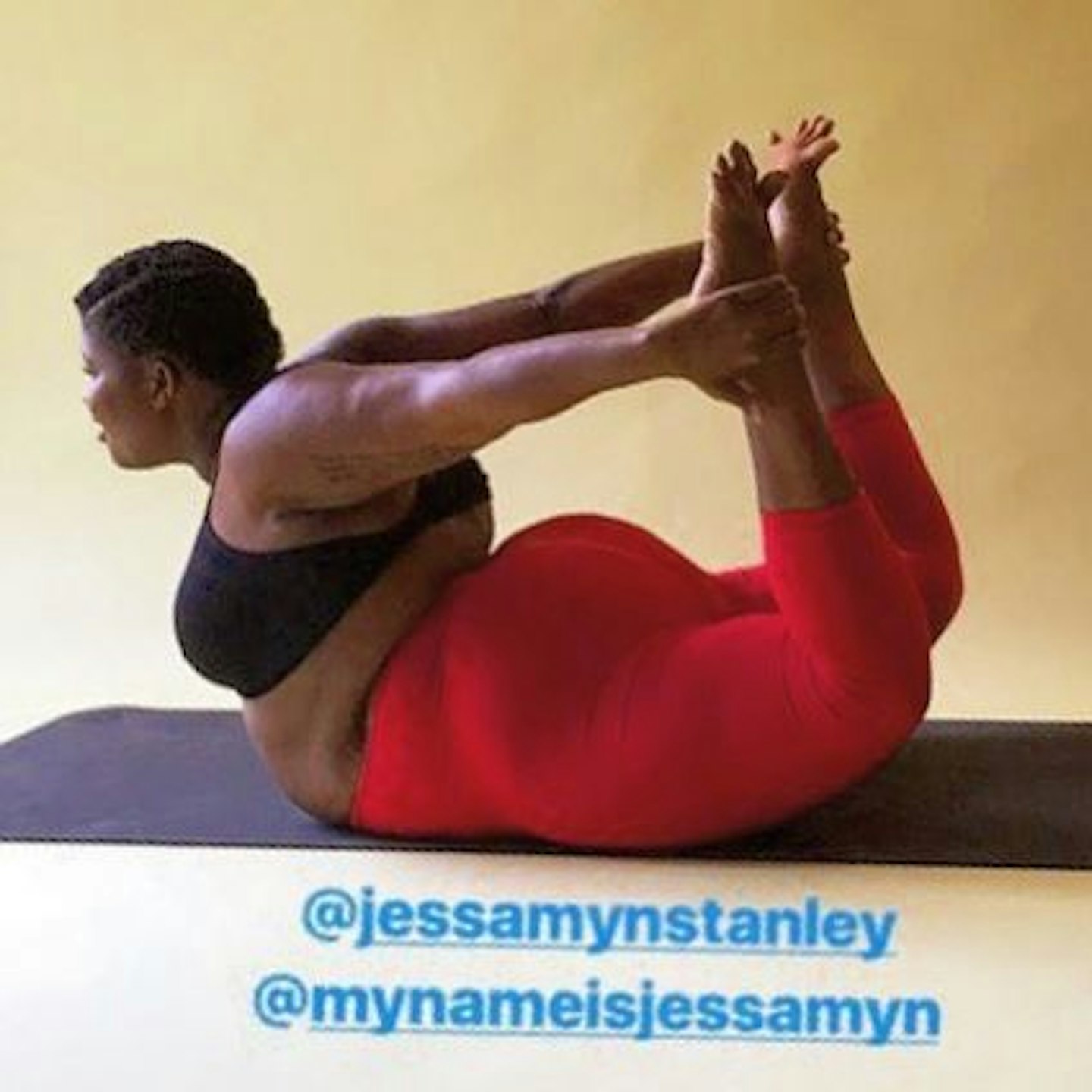 12 of 24
12 of 24Jessamyn
Another super body positive account to follow, Jessamyn is a yoga teacher regularly posting about the emotional and physical benefits of body positivity and practicing yoga.
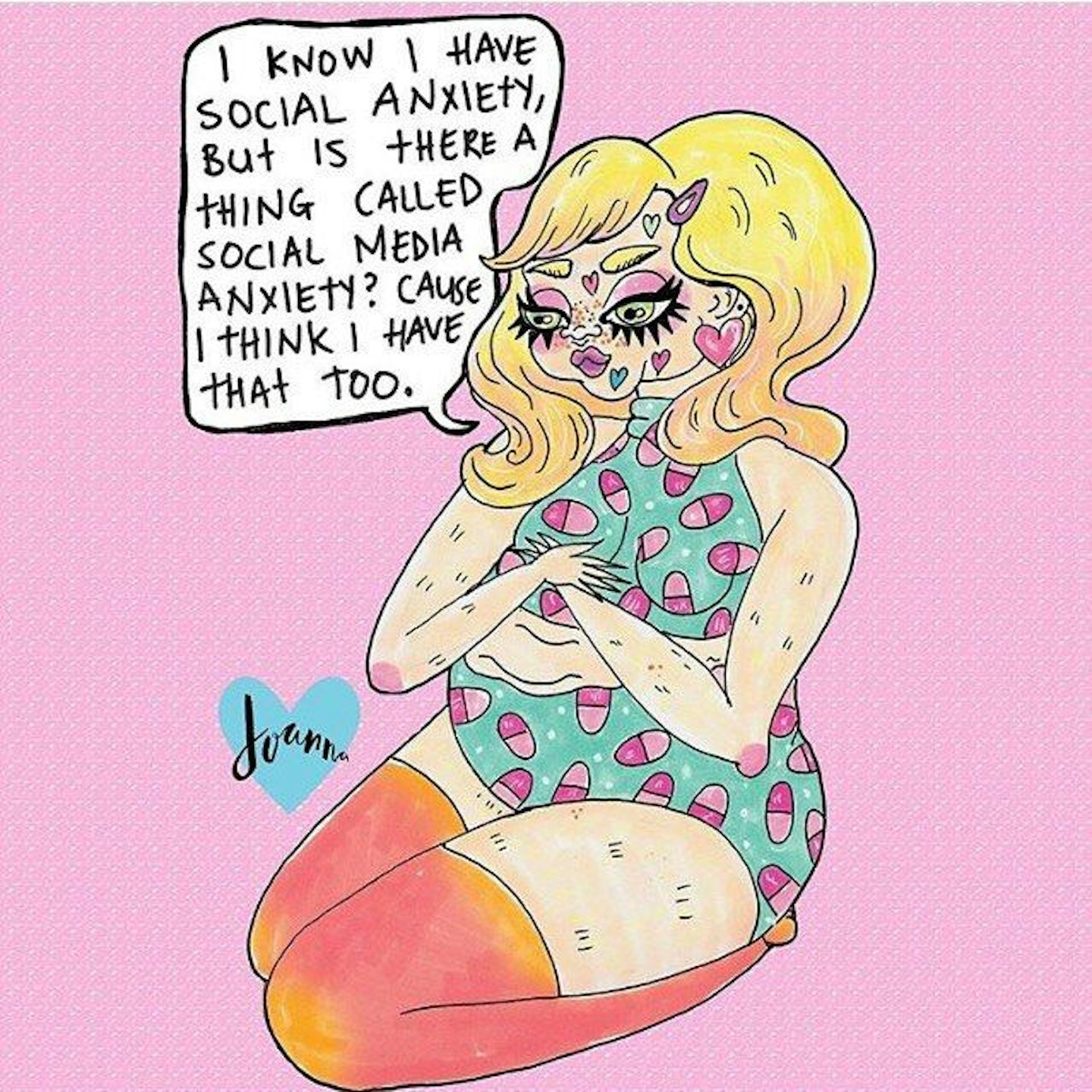 13 of 24
13 of 24Joanna Thangiah
Shun your timeline of filtered selfies and over exposed holiday destinations. It's time for some feminist, mental health aware art! This account is amazing for cute cartoons that say everything we're already feeling.
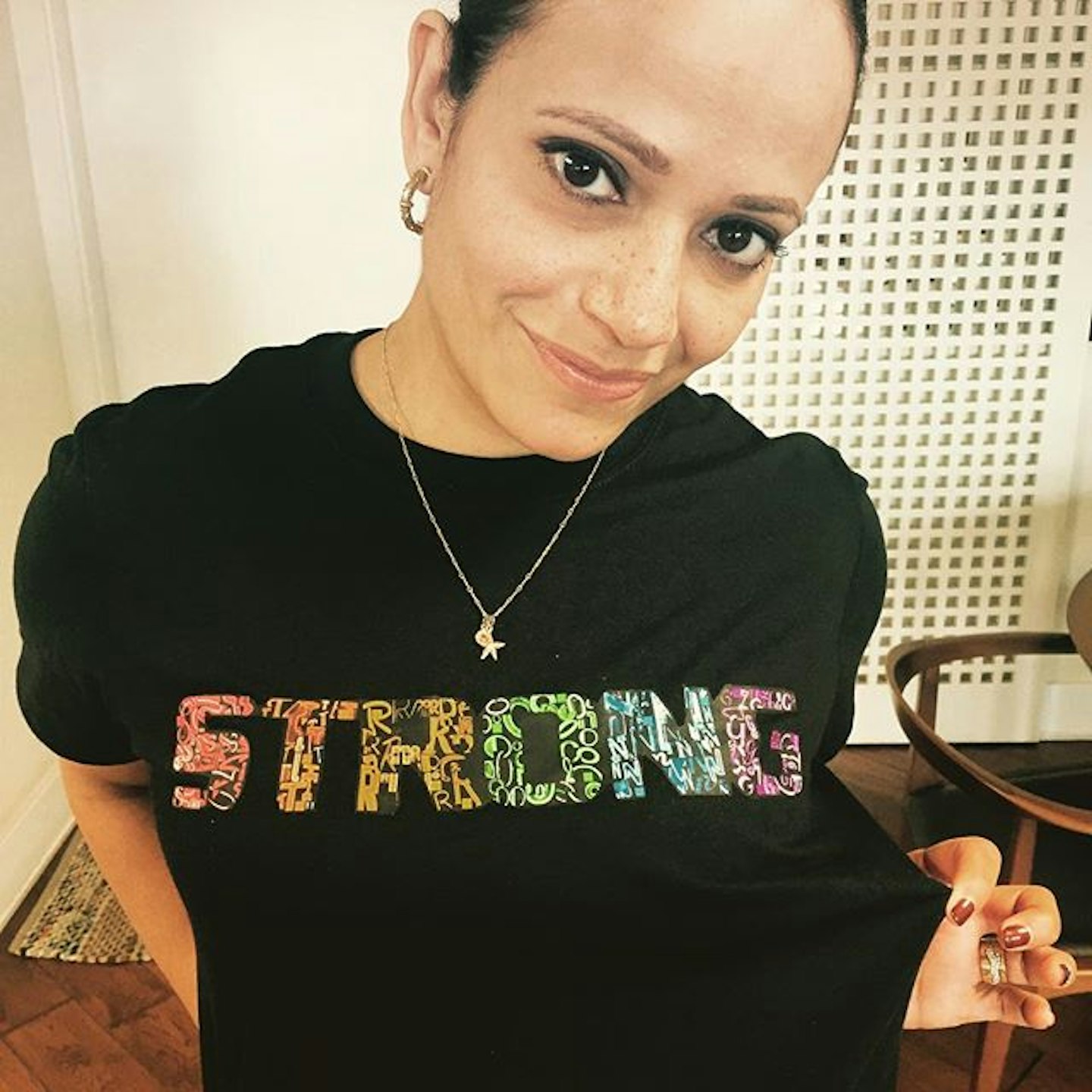 14 of 24
14 of 24Judy Reyes
You'll probably remember Judy as Carla from Scrubs, or one of the other thousand TV show she's been in throughout her insanely successful career. Unlike most Hollywood actors, her Insta is full of activism and news you need to know.
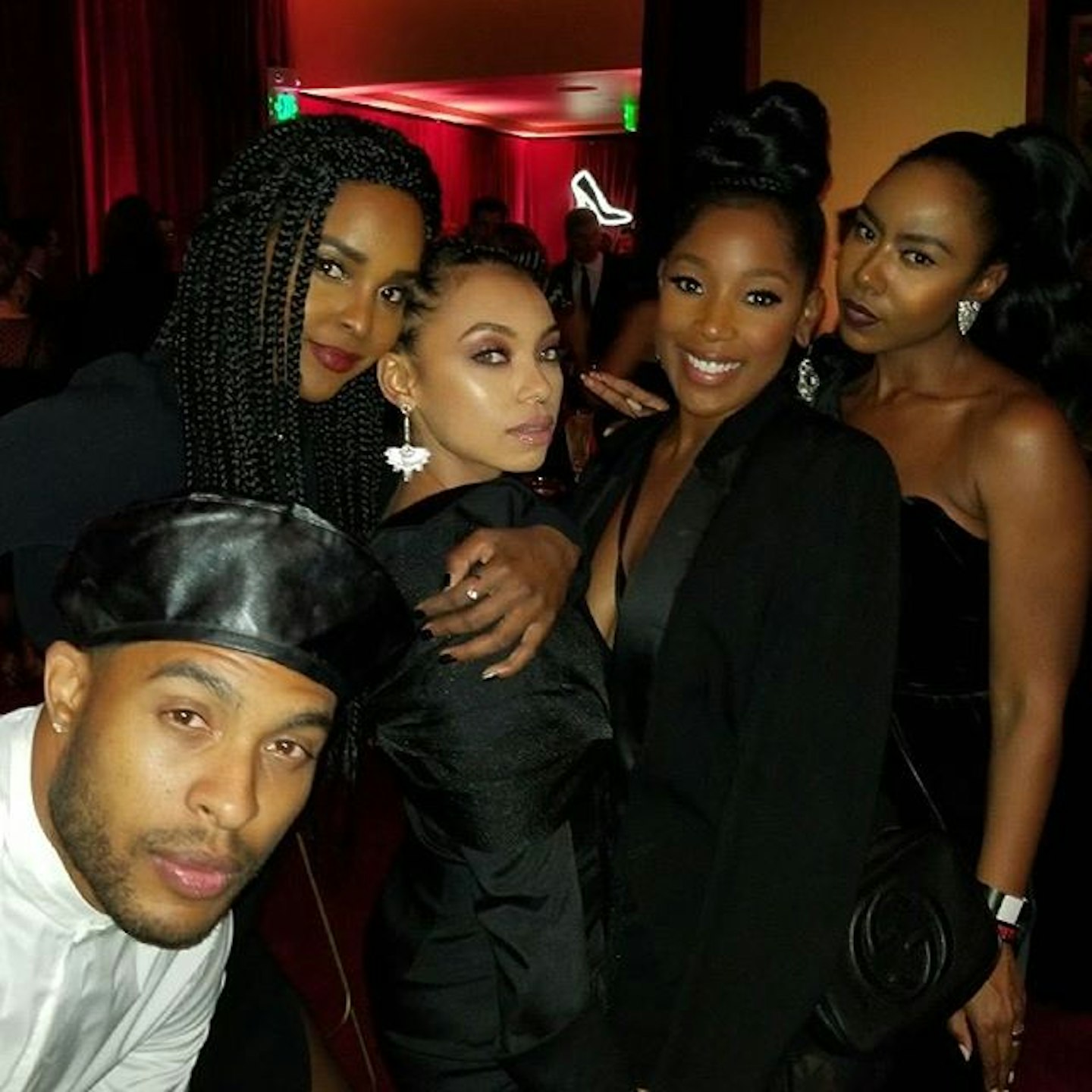 15 of 24
15 of 24Logan Browning
Activist and actor, Logan Browning is the lead of Netflix hit Dear White People. Posting powerful content and links to charities you can donate to so you can turn your online activism into action- she's a force to be reckoned with.
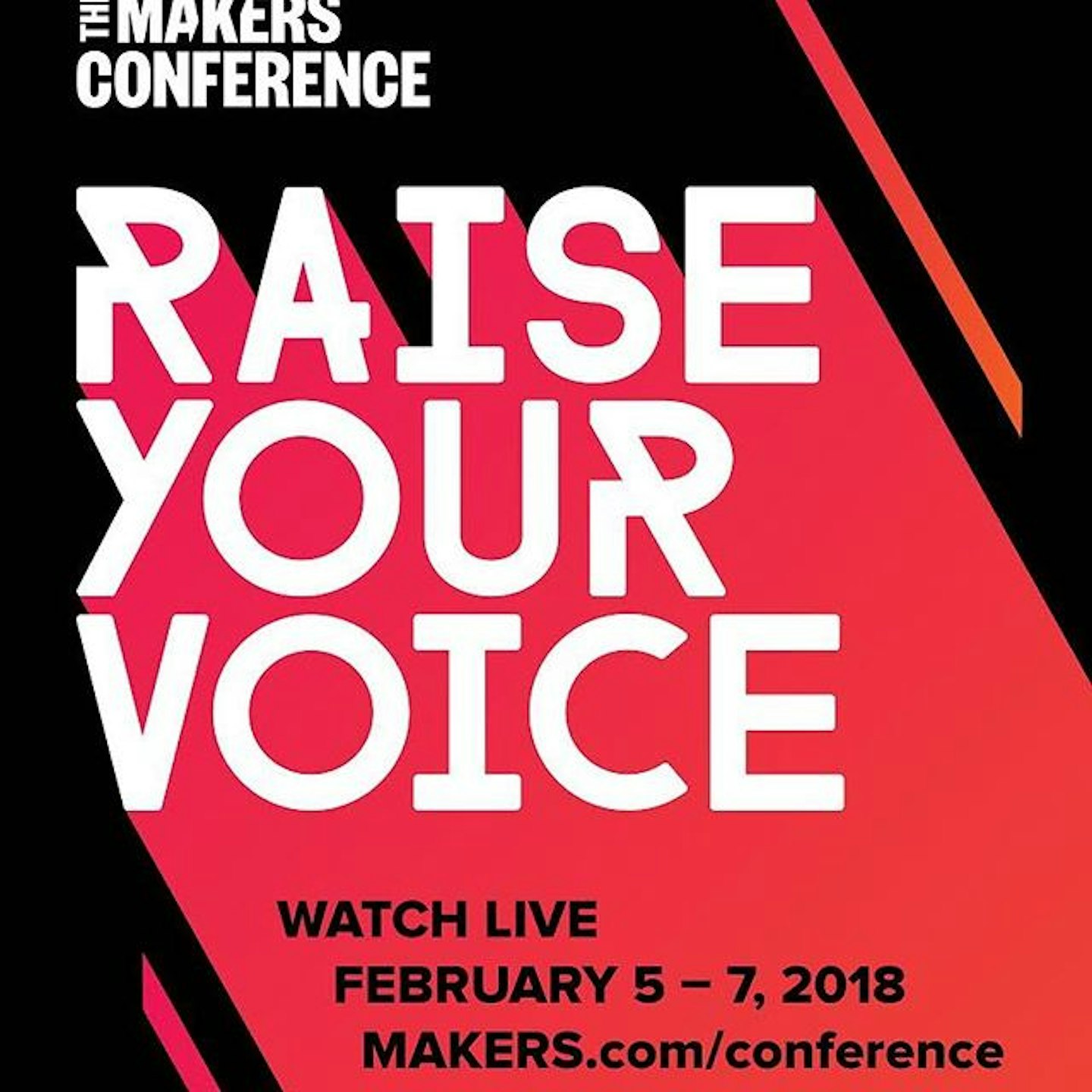 16 of 24
16 of 24Makers Women
MAKERS is a storytelling platform for women, posting quotes to keep you inspired throughout the day. Stay up to date with gender injustice, while also feeling hopeful with the powerful words these amazing women have to say.
.jpg?auto=format&w=1440&q=80) 17 of 24
17 of 24Nimisha Bhanot
Another artist you need to follow, Nimisha creates amazing prints (which you can buy) critiquing societal perceptions of South Asian women. She's based in Canada, but these prints can brighten up your timeline anywhere.
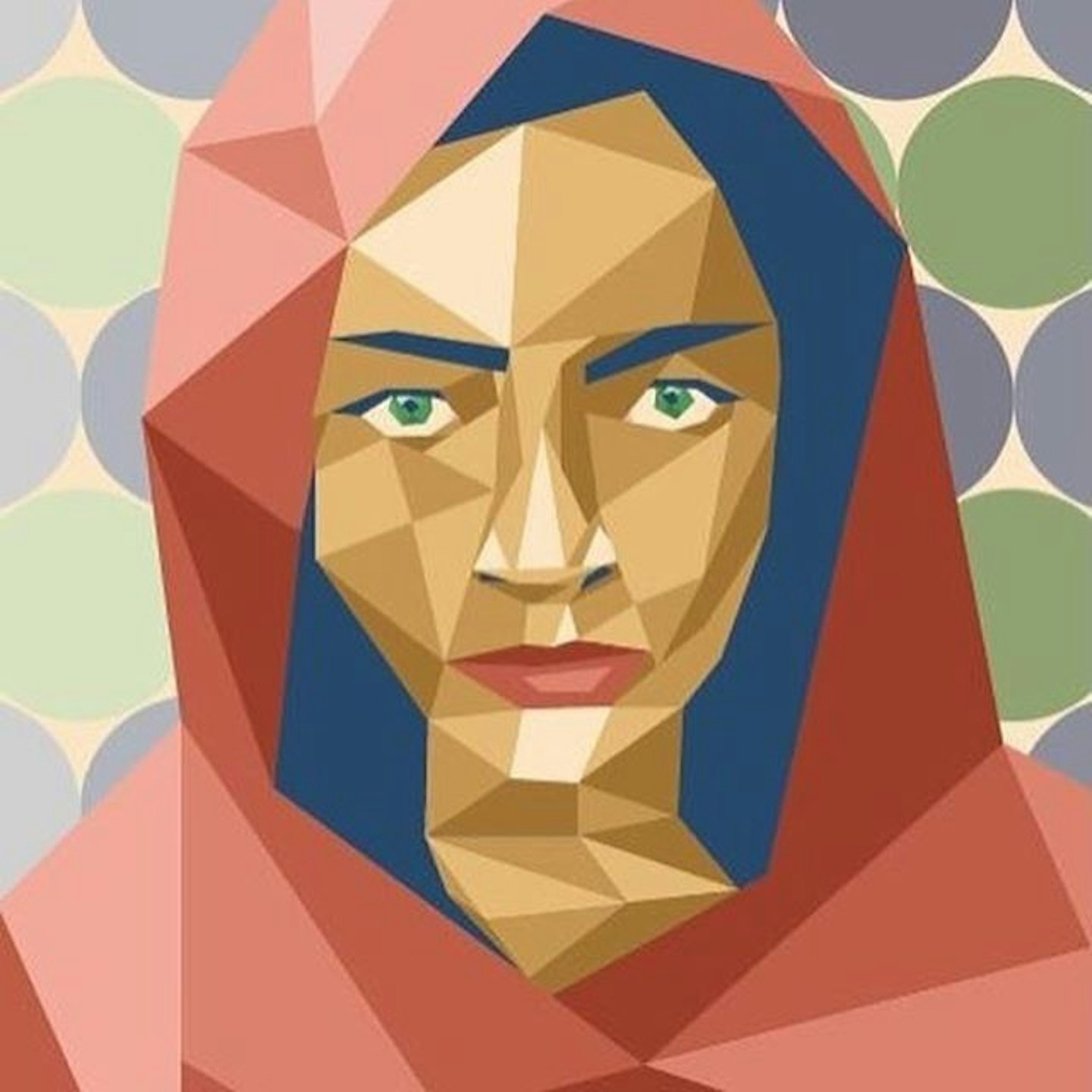 18 of 24
18 of 24Muslim Girl
Muslim Girl, where 'muslim women talk back' is an account ran by Amani. Advocating for issues facing muslim women, both accounts are an inspiration and necessity on your feed.
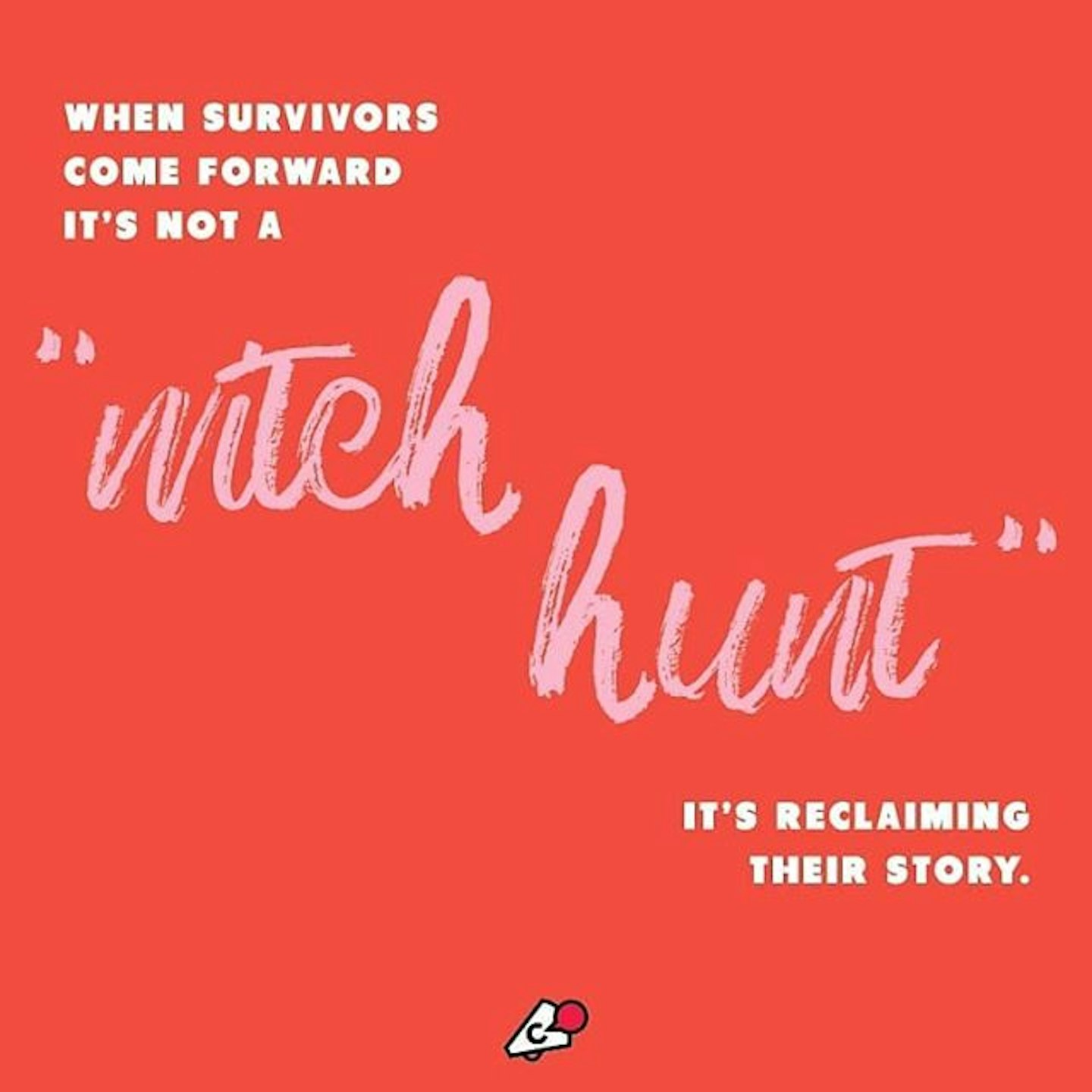 19 of 24
19 of 24Project Consent
There's no time like the present to be educating people on consent. This account does exactly that, and gives you the perfect explanations, comebacks and reminders to throw out at a dinner party if the issue comes up.
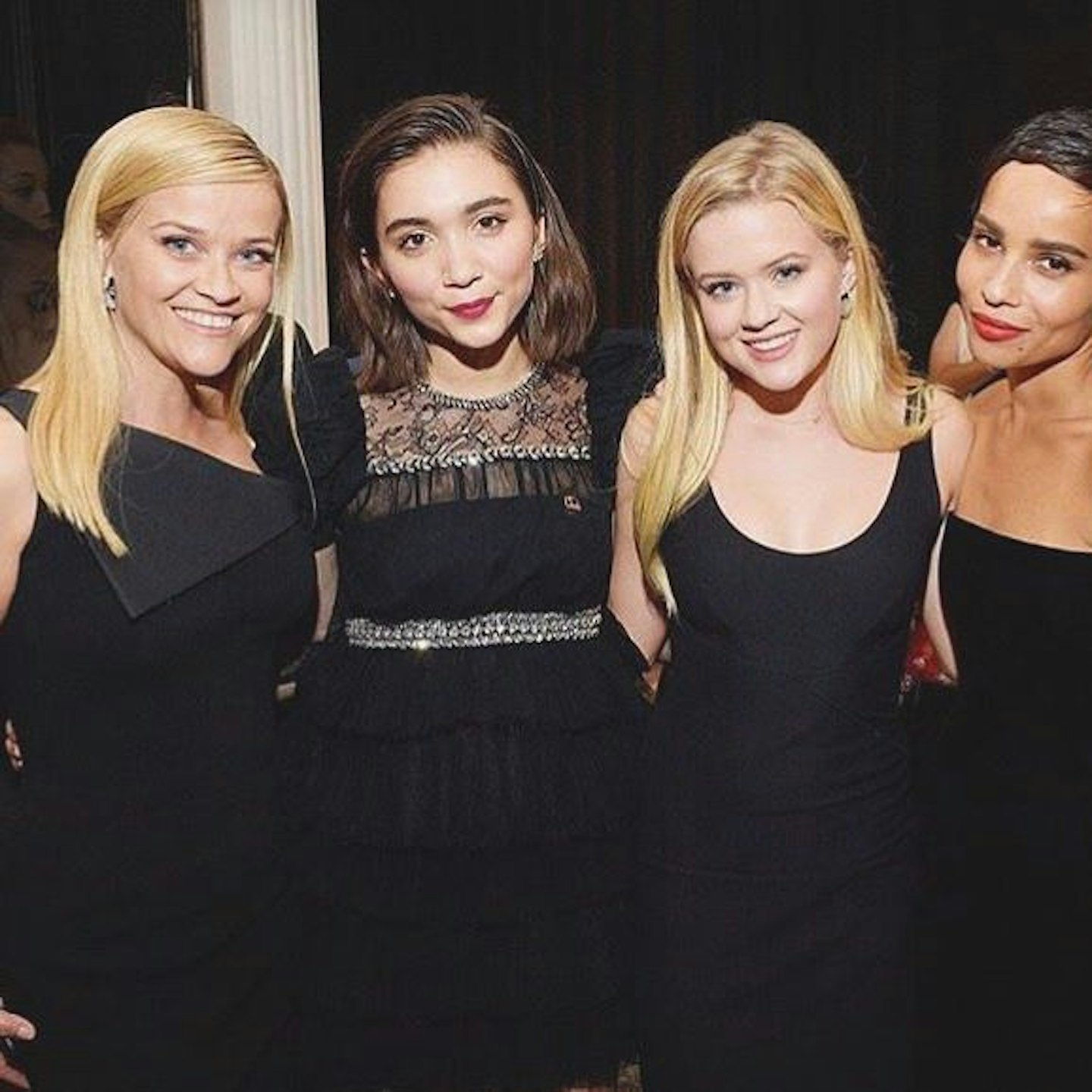 20 of 24
20 of 24Rowan Blanchard
Gone are the days of Disney stars going off the rails, this actor and activist is a beacon of positivity- especially online. Fighting gender and race injustice and beyond, she's one to watch.
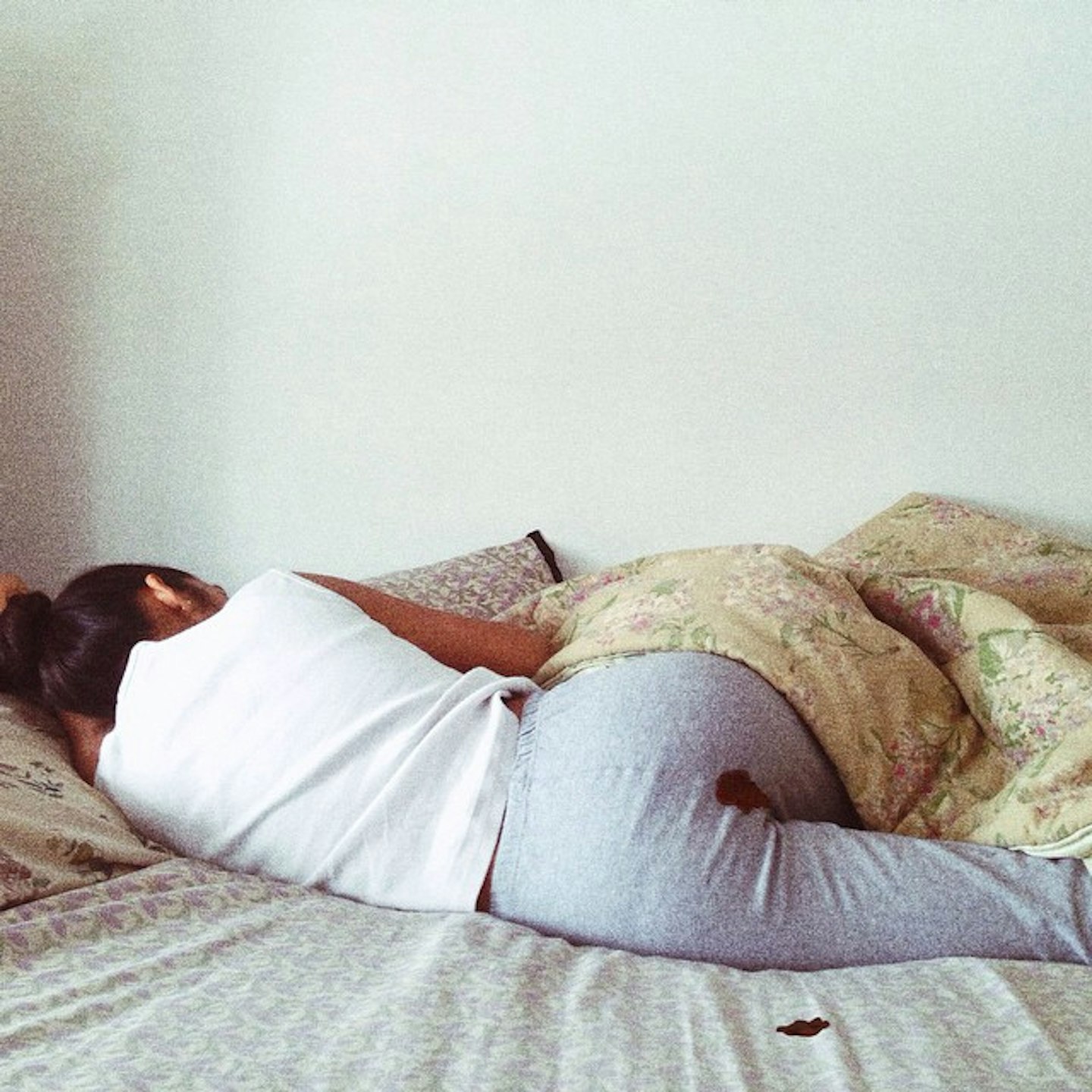 21 of 24
21 of 24Rupi Kaur
Rupi made headlines in 2015 when she posted pictures of her on Instagram with visible menstrual blood. Her posts were blocked by Instagram, causing backlash against the social media platform. She continues to break boundaries with her writing and poetry.
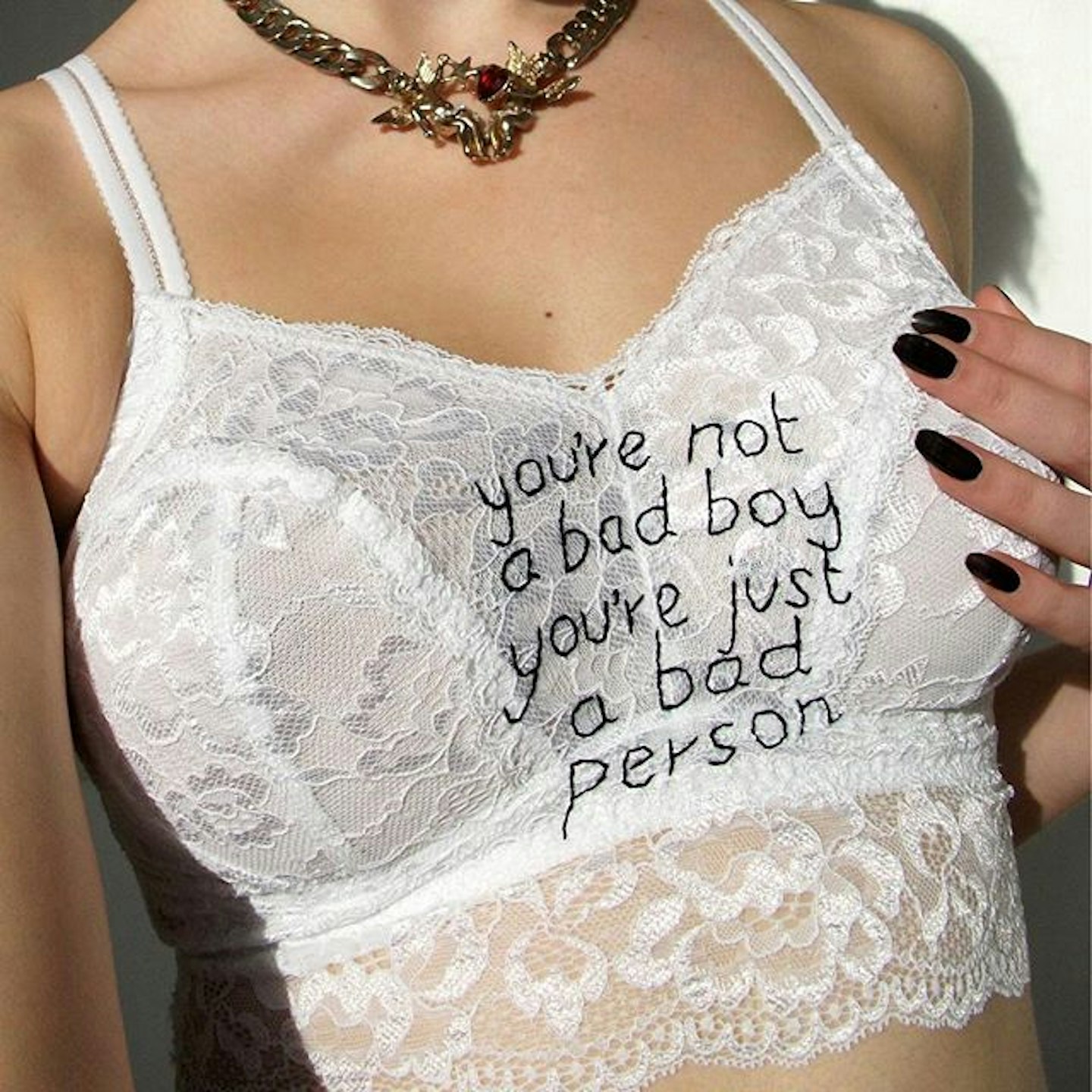 22 of 24
22 of 24Sophie King
This UK based embroidery artist is an up-and-coming star, embroidering feminist slogans onto everything from bras to roses. Bring her insta to life with her slogan t-shirts, or just stare at the pretty pictures, either way she's someone you should follow.
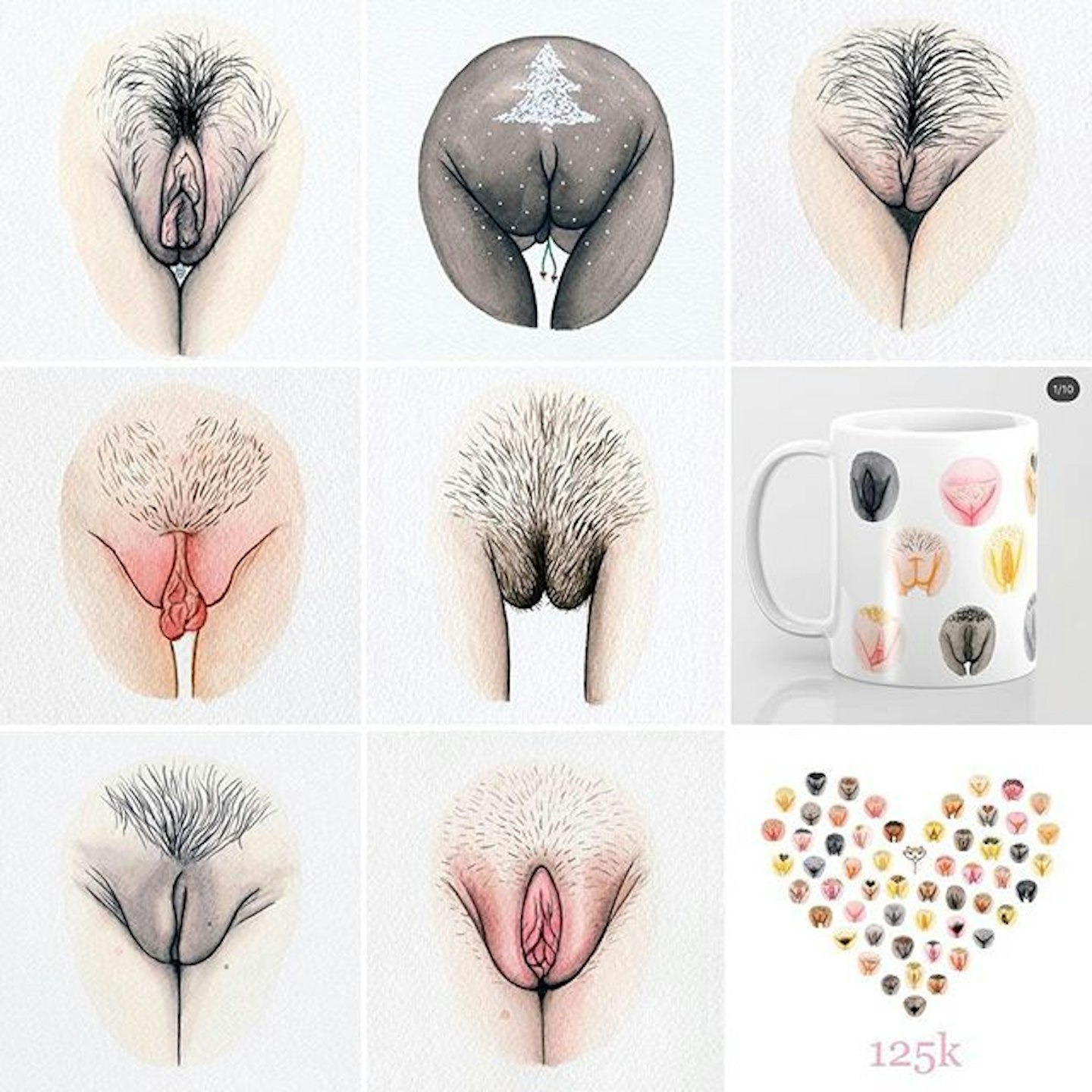 23 of 24
23 of 24The Vulva Gallery
Our favourite of all the accounts, the vulva gallery promotes self-love in an area SO often ignored. With two-thirds of women avoiding smear tests, life-saving procedures, because of the look of their vagina, it's time we stopped all of the self-loathing around genitals. Providing a regular reminder that all vaginas are beautiful, if you only follow one account of this list, it should be this one.
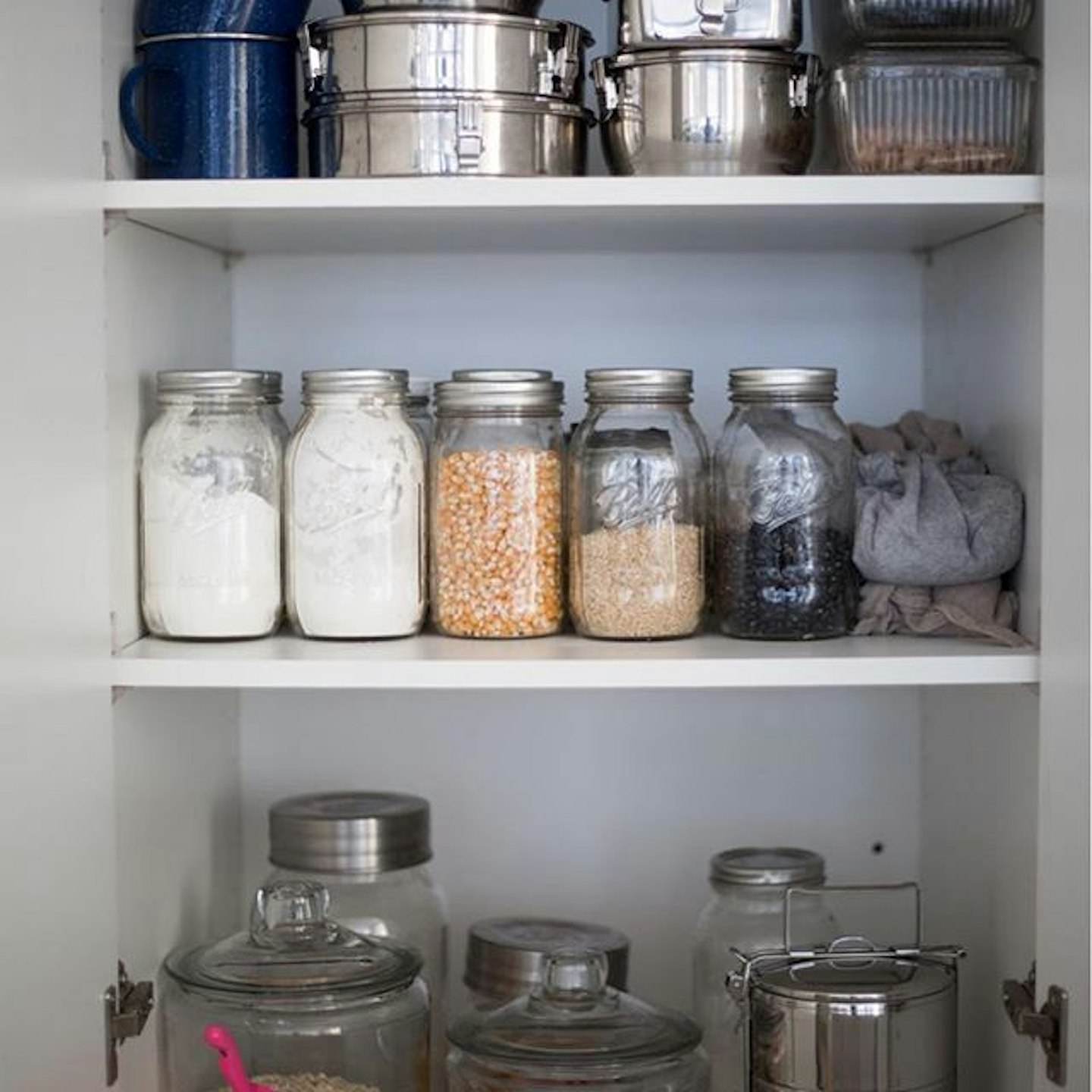 24 of 24
24 of 24Trash Is For Tossers
Lauren Singer lives an entirely waste-free life. Yes, you can actually do that. As #plasticfree takes over our news feed, it's time you had some daily advice on how exactly to reduce your waste. Save the planet!
